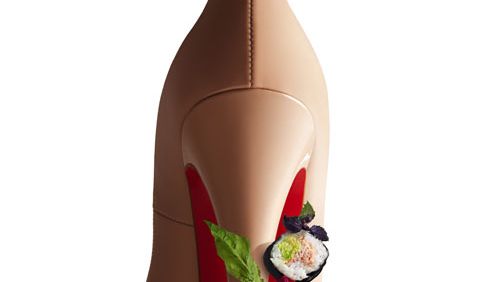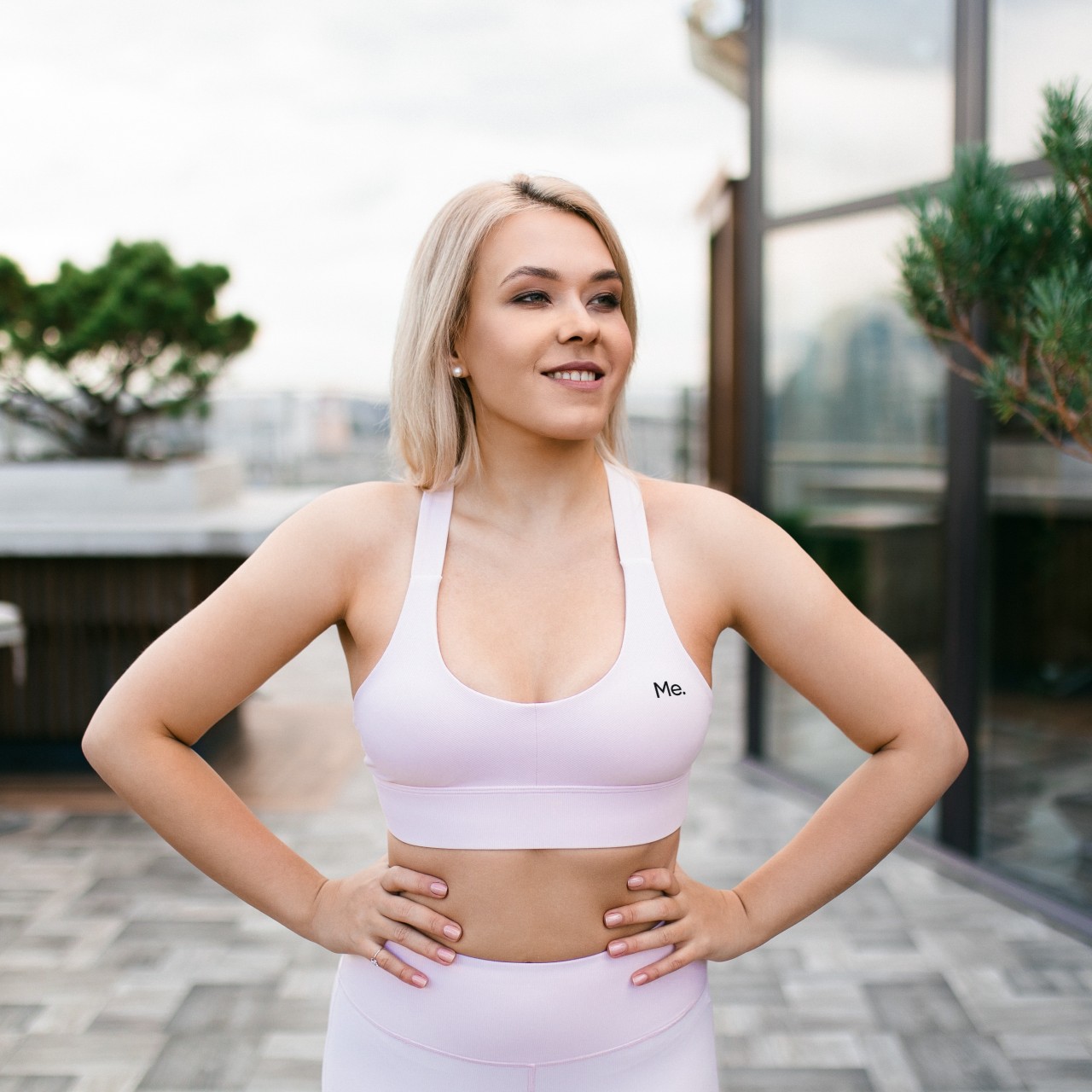The Petite Advantage: Small Changes for a Big Impact
A nutrition expert's latest book, specifically designed to help busy women 5'4" and shorter lose weight, includes easy-to-follow rules for dieters of all heights.

Nutrition expert Jim Karas, a Chicago-based Wharton grad turned fitness guru, has developed a serious cult following thanks to his cardio-free approach to diet and fitness. High-profile devotees like Diane Sawyer adore his speedy, full-body resistance-training regimen for the time-strapped. (It consists of a mere half hour of exercise three times per week.) His latest book, The Petite Advantage Diet, was specifically designed to help busy women 5'4" and shorter — who account for just under 50 percent of the population — lose weight. Turns out these easy-to-follow rules can work for women of all heights.
ONE: BRING ON BREAKFAST
"If you diet first thing in the morning, you inevitably overeat later," says Karas. Plus, your calorie-burning ability each day is cued up by your first meal. Skimp, and your body goes into hoarding mode. If you're short, a high-protein, high-fiber, 300- to 400-calorie meal early on will maximize your metabolic efficiency all day.
TWO: OUTSMART YOUR STOMACH
Shorter women often find themselves going plate-for-plate with mismatched meal partners. Would you have seconds of cheesecake because your boyfriend did? Then ignore your 5'8" friend reaching for more. "We've got petite-size clothes but no petite-size food," laments Karas. He suggests loading up on low-calorie, high-water-content foods, like vegetables, plus protein found in foods like salmon or ground turkey. If you're cooking at home, opt for a whole-wheat wrap with chicken, hummus, bell peppers, and spinach. ("Volumetric" eating — in which the goal is to feel fuller by eating water-rich foods — is an effective strategy among dieters short or tall, notes J. Graham Thomas, Ph.D., assistant research professor at Brown University Medical School.) Karas also loves fiber for its satiety-promoting and bloat-reducing properties; he recommends a 3-gram supplement 15 minutes before dinner.
THREE: LIMIT FOOD FRENEMIES
Karas is exasperated by those who overindulge in high-calorie "healthy" foods, like olive oil (just one teaspoon a day! he begs), avocado (eat a quarter), or even whole-grain bread ("it's not a get-out-of-jail-free card!" he says).
Stay In The Know
Get exclusive access to fashion and beauty trends, hot-off-the-press celebrity news, and more.
FOUR: STAY CLEAN
Avoid meals with unknown quantities of oil and fat; Italian and Chinese restaurant dishes are filled with culprits. Skip a chain restaurant's spaghetti-and-meatball dinner, which can have up to 36 grams of fat, and indulge in a plain petite filet — a 6-ounce serving of filet mignon — which has just 11.2 grams. For extra kick, spice up your food with chili or jalapeño peppers, which rev up your body's calorie-burning capabilities, says Karas.
FIVE: CALORIE-CYCLE
If you're petite, limit yourself to 1,100 calories for two days straight. Then indulge in one 1,600-calorie day. (Taller women should eat 1,200 calories for two days and 1,700 on the third.) The "bonus" day keeps you psychologically motivated; physiologically, it prevents your metabolism from dipping while you're eating lightly.
SIX: UP YOUR METABOLISM AT THE GYM
Karas says petite women should think of themselves as studio apartments in New York City: "There's no room for junk (fat), just functional furniture (muscle)." That means go easy on the cardio, since excessive aerobic workouts can weaken the immune system, increase appetite, and destroy muscle, he says. Karas cites a study published in the Journal of the American College of Nutrition reporting that a calorie-restricted group on a cardio-only exercise plan lost muscle, while one on a strength-only plan maintained muscle; meanwhile, both groups gained cardiovascular health. His prescription? Interval-based strength training.
SEVEN: COOL IT
Eating simple starches like potatoes and white bread, or even experiencing a stressful day, can trigger hormonal shifts, especially in small women, according to Karas. As a result, their appetites may spike. "Just as a short woman might react badly to a drug dose meant for a larger person, there's less margin of error for hormones," he says. Karas insists on seven to eight hours of sleep per night, as well as 10 minutes of deep, slow breathing per day, to reduce inflammatory stress hormones like cortisol. "Be selfish," he implores. "Take care of yourself!"
-
 Anne Hathaway’s Latest Hairstyle Doesn’t Look Real—And That’s the Point
Anne Hathaway’s Latest Hairstyle Doesn’t Look Real—And That’s the PointThe AI-inspired ponytail was front and center at the Ralph Lauren show.
By Ariel Baker
-
 These 8 Spring Looks Always Get Me Compliments
These 8 Spring Looks Always Get Me ComplimentsGo ahead and steal a page from my style playbook.
By Lauren Tappan
-
 Donald Trump Hints at When "Incredible" State Visit With King Charles Will Take Place
Donald Trump Hints at When "Incredible" State Visit With King Charles Will Take Place"I don't know how it can be bigger than the last one."
By Kristin Contino
-
 There's a Huge Gap in Women's Healthcare Research—Perelel Wants to Change That
There's a Huge Gap in Women's Healthcare Research—Perelel Wants to Change ThatThe vitamin company has pledged $10 million to help close the research gap, and they joined us at Power Play to talk about it.
By Nayiri Mampourian
-
 I Work Out 5 Days a Week—These Are the Brands I Wear on Repeat
I Work Out 5 Days a Week—These Are the Brands I Wear on RepeatSponsor Content Created With Nordstrom
By Emma Walsh
-
 The Wellness Issue
The Wellness IssueLooking at women's health through a new lens.
By Marie Claire Editors
-
 BetterMe Will Make Your New Year’s Resolutions Last the Other 12 Months
BetterMe Will Make Your New Year’s Resolutions Last the Other 12 MonthsSponsored BetterMe: Health Coaching uses a psychology-based program to approach your health goals from all angles, so they stay within reach.
By Sponsored
-
 Everlywell's At-Home Test Kits Are 40% Off
Everlywell's At-Home Test Kits Are 40% OffThe testing company is offering big savings on some of their most popular kits.
By The Editors
-
 Senator Klobuchar: "Early Detection Saves Lives. It Saved Mine"
Senator Klobuchar: "Early Detection Saves Lives. It Saved Mine"Senator and breast cancer survivor Amy Klobuchar is encouraging women not to put off preventative care any longer.
By Senator Amy Klobuchar
-
 I'm an Egg Donor. Why Was It So Difficult for Me to Tell People That?
I'm an Egg Donor. Why Was It So Difficult for Me to Tell People That?Much like abortion, surrogacy, and IVF, becoming an egg donor was a reproductive choice that felt unfit for society’s standards of womanhood.
By Lauryn Chamberlain
-
 The 20 Best Probiotics to Keep Your Gut in Check
The 20 Best Probiotics to Keep Your Gut in CheckGut health = wealth.
By Julia Marzovilla